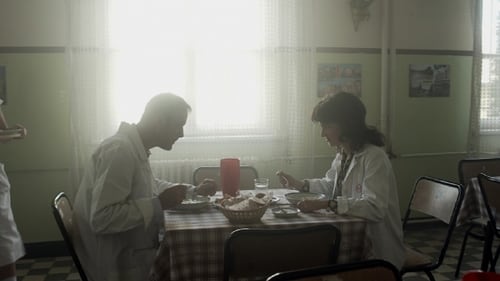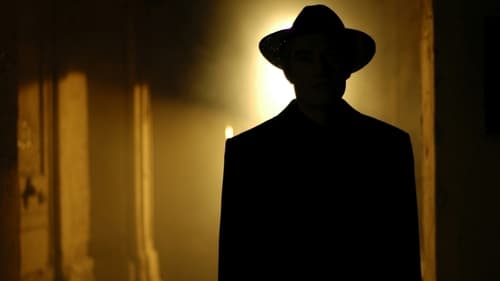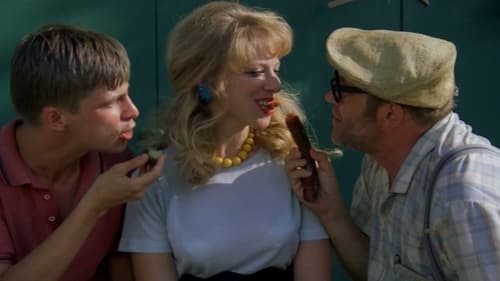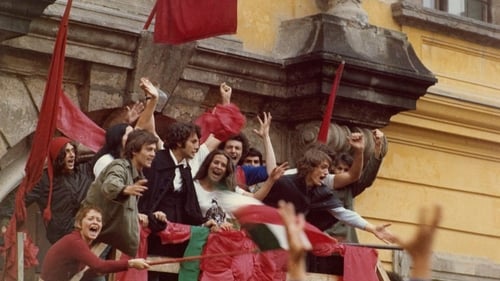Péter Blaskó
Nacimiento : 1948-06-13, Budapest, Hungary

Idősebb Kállai

Kertész Artúr
This multi-award winning film tells the story of precise and silent, Tibor Malkáv – your average 37 year-old man, who though not rich, leads a comfortable and uncomplicated life. All this changes when he finds out his mother is dying of cancer and the cost of surgery is well beyond his means. A one-eyed man known as the Cyclops offers Tibor a solution to his financial woes, however, there is a catch and Tibor has to kill someone in return. What follows is a chain reaction that has long lasting and unexpected results.

Dr. Gárgyán
At 15 he and his family became victims of state terror. At 16 he became a freedom fighter to participate in the 1956 Revolution against Soviet oppression. At 17 he is betrayed and arrested by the dreaded Secret Police (AVH). Now he has to spend the remainder of his life in a political prison, called Hell's Hallway, to reach the legal age of 18 before his death penalty can be carried out. Peter Mansfeld was 18 when he was unjustly executed by the totalitarian regime of Hungary. Today he is remembered as one of the national heroes of Hungary.

Apa
This story has a horse-race fan main character who sells clothes-hangers On one trip, a young, teenager boy relative goes with him. They have a lot of adventures as they become friends. Girls, dance and horse-racing are the themes while they sell the clothes-hangers this summer...

Kuligin
The film is a modernised version of the Chekhov drama, put in Budapest, Hungary, in a Soviet barracks between 1987 and 1991.

Polgármester

Nyomozó
Hungary's submission for the Academy Award for Best Foreign Language Film in 1990

Bodnár Bálint

Hungary's submission for the Academy Award for Best Foreign Language Film in 1984

Fiatal szomszéd
Hungría, 1943. Una pareja de ancianos judíos, Job y Roza, adopta a un revoltoso niño no judío a quien tienen la intención de traspasar su riqueza y conocimiento antes que la opresión nazi envuelva a Hungría.

Siska fõhadnagy
Two old women who happen to be pickpockets stole money from Simon, the taxi driver. The police are unable to find the thieves, so Simon decides to find them himself.

One day Novák Erzsébet kindergarten-teacher destroys her papers, cuts her hair and closes her mouth forever. She prepares for suicide namelessly, then somewhere around Normafa she accepts being taken into an asylum.

Klapka
Using high-school students, Hungarian director Ferenc Kardos re-created the 1848 revolutionary period in that country's history which was dominated by the poet/soldier Sandor Petofi (1822-1849). Petofi wrote many epic poems which inspired Hungarian nationalism, the most well-known of which is Up Magyar! The students were encouraged to improvise without costumes or scenery, and did so with gusto.

Elek Szabó
This film is a documentaristic dispute about the possibilities of young people to assert themselves, to make a career. Zsuzsa is a third-year university student studying pedagogy. She has been dating Zoltán for three years, and her thinking has been fundamentally shaped by this relationship. Yet now she would like to break up with him.

Zsiráf, Juli bátyja
Savanyú and his friend work at a plant. After the monotonous shifts they engage in the pleasures of the afternoon and the night, i.e. parties and concerts. Savanyú dates Juli, they are already engaged. The young men live as sub-tenants, the young women in workers' hostels. None of these places are suited for spending time together. They are in need of an apartment. Out of the ruinous apartment which they lay siege on, however, they are sent away by the otherwise friendly policeman. At a concert held in the Park of Youth, Juli gets to know Géza. They flirt, then go to the country with a pop-group. Savanyú and his friends follow them. A minor fight cools the atmosphere.

The film is a historic parable about the topicality of revolution. 1514. The peasants' uprising is over, Dózsa has been arrested. Werbőczy tries to get the imprisoned peasant leader deny the revolution and offers him the lives of his people in exchange.









